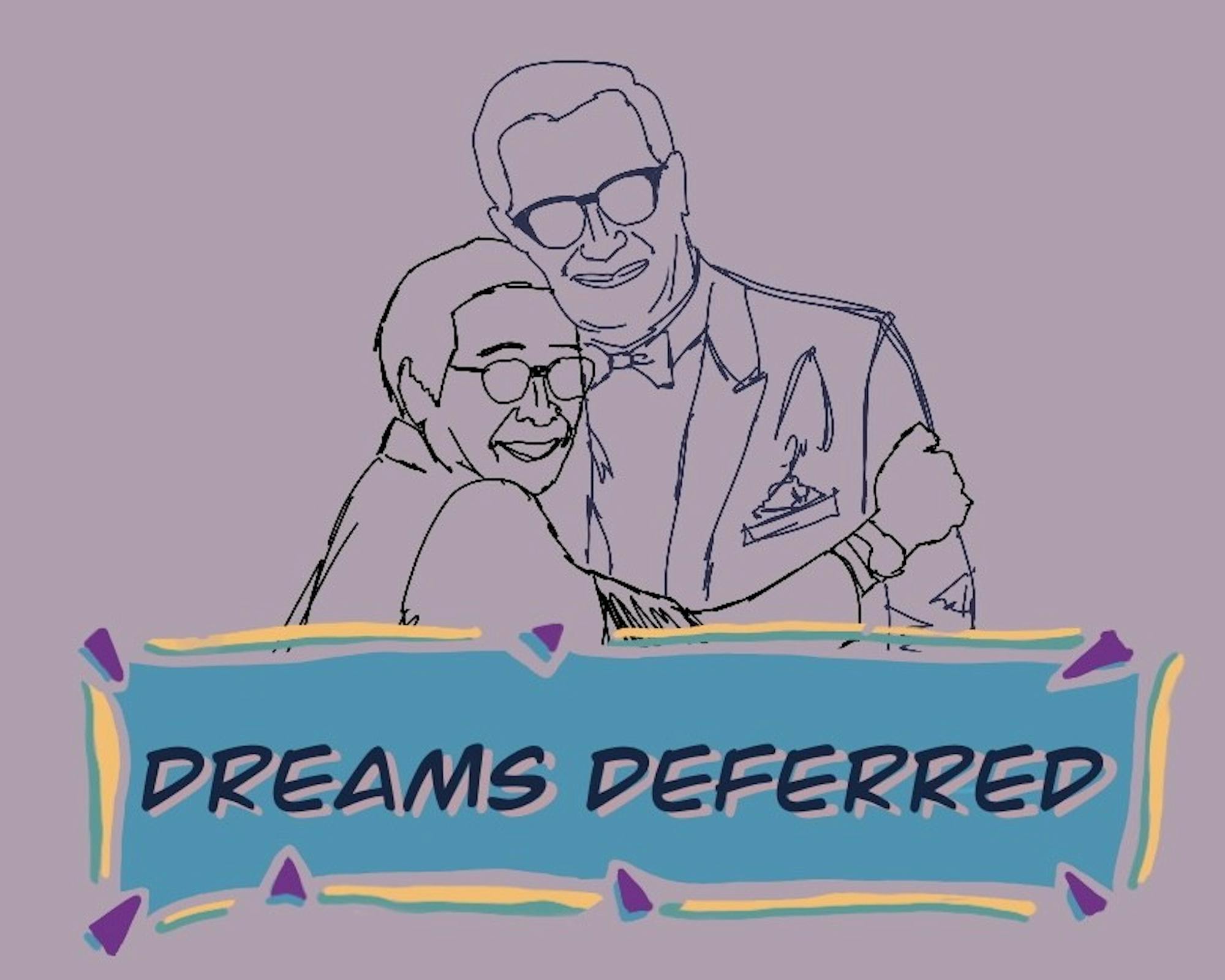“From this day forward, I will always be Oscar-nominated Ke Huy Quan!”
Quan described the day he found out he was nominated for an Oscar for his role as Waymond Wang in “Everything Everywhere All at Once” to the New York Times as “one of the happiest of his life.” The actor, now 51, found fame as a child star in the 1980s — Quan starred alongside Harrison Ford as Short Round in “Indiana Jones and the Last Crusade” and later as Data in “The Goonies.”
Quan arrived in Los Angeles with his family in 1979 to start a new life after fleeing Vietnam. Then, as a last ditch effort to cast a Chinese boy in their upcoming installment of the Indiana Jones franchise, George Lucas and Steven Spielberg held an opening casting call at Quan’s elementary school in Chinatown. Though Quan was only there to support his brother in his audition, a casting director asked him if he wanted to give the lines a try.
Despite his childhood successes, Quan struggled to find his place in an industry that offered few roles to Asian actors — and even fewer that were not jarring stereotypes. Even after attending University of Southern California School of Cinematic Arts, Quan was unable to secure roles that were not disrespectful or overtly typecast. He would go on to work behind the scenes for the majority of his career as a stunt choreographer.
As Quan stepped out of the limelight in the early 1990s, another actor, Brendan Fraser, was just stepping into it.
Fraser became a household name for his success as George in “George of the Jungle” in 1997 and for his 1999-2008 portrayal of Rick O’Connell in the “The Mummy” trilogy, which is now widely regarded as a cult classic. But, as with Quan, Fraser’s success in the industry soon faltered. His career was impacted by years of on-set injuries and by an allegation of sexual assault he made against Phillip Berk, who was then acting president of the Hollywood Foreign Press Association.
In 2018, Fraser spoke publicly about his allegations for the first time, 15 years after the alleged assault occurred. At the time, Fraser admitted that, after the encounter, he wasn't sure if he had taken a step back from Hollywood or if Hollywood had taken a step back from him.
Fraser told GQ in a subsequent interview in 2022 that the incident permanently colored his life. As a result, Fraser spent a decade away from the industry before returning to Hollywood.
Quan and Fraser both withdrew from an industry that, respectively, did not support them. Quan was a young Asian-American actor trying to break free from typecast roles. Fraser was a male sexual assault survivor in an industry known for historically sweeping such allegations under the rug.
Today, they are both Oscar-nominated actors, having been joyously received as heartwarming and courageous comeback stories.
Though Fraser returned to acting in 2018, his celebrated comeback has been framed around his lead role in “The Whale,” in which he plays an obese teacher attempting to reconnect with his estranged daughter. Fraser empathized with his character’s desire for reconciliation, and his emotions throughout this award season communicate this connection. The actor was brought to tears at the Venice Film Festival, where he received a six-minute standing ovation. Since then, his teary-eyed testimonials to the production have become heartbreakingly commonplace this award season.
Fraser has been received with open hearts by audiences that remember his “pure soul.” Over 20 years since an incident that would come to define much of his life, Fraser has reemerged to a world that is more willing to accept and support survivors of sexual violence than the one he left years ago.
Quan, too, has found his place in a changing industry. His film, “Everything Everywhere All At Once,” is an emblem of intergenerational Asian-American experiences that has been lauded as such. Its success comes as part of a new age of American cinema that is challenging a whitewashed tradition. The past five years have seen the incredible success of movies highlighting East Asian experiences, including “Crazy Rich Asians,” “Turning Red,” “Minari” and “The Farewell.”
It was “Crazy Rich Asians” that sparked Quan’s interest in returning to the industry, as Quan told GQ: “For a long time I thought I was at peace with [stepping away from acting], but something was missing, and I really didn't know what it was until ‘Crazy Rich Asians’ came out. I saw my fellow Asian actors up on the screen, and I had serious FOMO because I wanted to be up there with them.”
What was the first script that Quan picked up after being away from the screen for decades? “Everything Everywhere All at Once.” The movie now has 11 Oscar nominations, and this year marks a record number of nominations for Asian actors.
Quan’s character Waymond preaches kindness throughout the film, and the power of that message is not lost on Quan with his return to the industry.
“That’s one of the reasons why our movie resonated with people. It’s the message. It’s about being kind, having empathy for one another and showing each other love,” Quan told the Hollywood Reporter.
In one of his final roles before he deferred his dreams of acting, Quan found himself a part of the 1992 comedy “Encino Man.” It was one of the last times he would find himself in front of a camera until “Everything Everywhere all at Once.”
It was also the last time he would see the star of the film, Brendan Fraser, for almost 32 years. At the 28th annual Critics Choice Awards on Jan. 15, the two reunited.
"He put his hand on my shoulder, and he said this — he was still here," Quan told reporters. "I will never forget those three words, and it's actually right."




